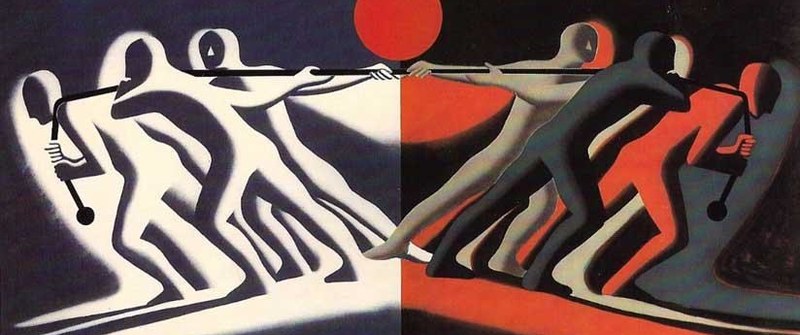FWP:
SETS == EXCLAMATION; KYA
ABOUT the emphatic, negative
use of koʾī : This usage is idiomatic, and rests on an implied but colloquially omitted kyā , which displays its virtuoso power here. It isn't even present in the verse, and yet the first line would be nonsensical without it. Since the line contains no negator, without the implied kyā to make it an indignant negative rhetorical question (or, conceivably, a genuine question), it would end up affirming that the tug-of-war does go away. More such examples: {119,9},
{148,7}.
Of course, 'losing your heart' is just as painful as keeping it. Especially, no doubt, when the process involves a prolonged tug-of-war in which the heart constantly seeks to pull away and join the beloved. Does such pain ever depart? Of course not! As if!
The pivotal word in the second line is vuhī , which anchors the two distinct ways in which the grammar of the second line can be arranged. Either vuhī is an adjective modifying dard (2a), or it is a noun referring to the heart's going (2b). (For an example of an equally pivotal yihī , see {20,1}.)
If we adopt (2a), then the result is a vision of something
like the phantom pain in an amputated limb. Even if the heart goes, it somehow still
aches. If we adopt (2b), then even if the heart goes, its going is itself
painful to the heart (or to the place in the lover's chest where it still metaphorically
is). The result is a kind of tug-of-war between keeping and losing, a process
of seeking to root out grief while finding it ever more subtle and ineradicable.
A related paradox of losing and finding the heart appears in several verses
of {4}.

Nazm:
That is, it's not possible in any way for the sorrow of passion to become less. If the heart departed, even then grief of the heart would remain. (8)
== Nazm page 8